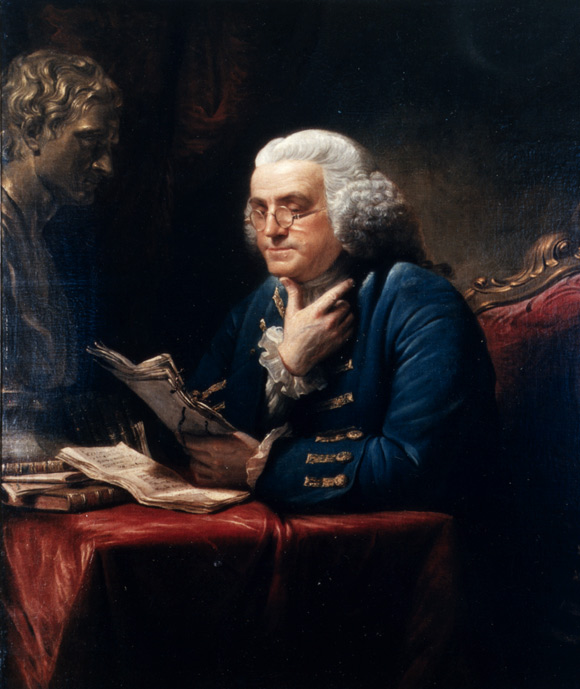|
Home · Psychology and Religion · Society · [Patriotic Reading List] Some reading suggestions for Americans who want to contribute as citizens.
With special attention to the
Sermon on the Mount
(Matthew 5-7) and the
Wisdom Books of the Old Testament.
Protestants should not neglect the
Deuterocanonical books.
The quintessential American 'self-made man'. Eliot, Charles W. (ed.). The Autobiography of Benjamin Franklin; Journal of John Woolman; William Penn's Fruits of Solitude. The Harvard Classics, vol. 1. New York: P. F. Collier & Son, 1909.
We were taught in school about the Federalist Papers -- in part because the Federalists (led by Alexander Hamilton, John Jay, and James Madison) prevailed during the Constitutional debates. Of perhaps equal or even greater interest today are their opponents, the Anti-Federalists, who were apprehensive about granting too many powers to the federal government. Their concerns and arguments bear close scrutiny. Ketcham, Ralph. The Anti-Federalist Papers and the Constitutional Convention Debates. Penguin, 2003. ISBN 0451528840, 9780451528841
An excellent selection of the Anti-Federalist papers can be found found online here and here. It goes without saying that the Federalist Papers themselves are most informative.
Another valuable online resource related to the Constitution and its interpretation is
The Founders Constitution. This supplies historical writings and analysis for each
section and clause of the Constitution. One of the works often there cited is the magisterial
1833 Commentaries on the Constitution by Supreme Court Justice
Joseph Story.
Washington's concerns about America's future have proven uncannily accurate. Rewards careful reading.
Biographies of Jefferson too often focus on the controversial. A potentially better way to understand Jefferson -- how he saw himself -- is to read from his correspondence. An excellent selection of Jefferson's letters is found at the link above. The book from which these are taken is: Peterson, Merrill D. (ed.). Thomas Jefferson Writings. Literary Classics of the United States. New York, 1984. (Letters, pp. 733 to 1517). Other letters can be found in the classic collection of Jefferson's works:Ford, Paul Leicester. The Works of Thomas Jefferson. Federal Edition. In 12 vols. New York: G.P. Putnam’s Sons, 1904-5.
Emerson published two volumes (or 'series') of Essays. The second series contains some of his best work, including On Self-Reliance, The Over-Soul, and Intellect Emerson is sometimes criticized for being too influenced by Eastern religions. In truth, Emerson's transcendental philosophy derives more directly from western Platonism: Plato, Plutarch and Plotinus. The complete works of Emerson are available online: Emerson, Ralph Waldo (author); Emerson, Edward Waldo (editor). The Complete Works of Ralph Waldo Emerson. Centenary Edition. Boston: Houghton Mifflin, 1903.
America cannot be understand only in terms of facts and figures. It has a soul.
Walt Whitman's work is perhaps the most important book of poetry published in America. "Song of Myself" is
especially worth reading.
"Ask not what your country can do for you; ask what you can do for your country."
A bit left-leaning at times, but not oppressively so, and worth reading in any case. Zinn, Howard. A People's History of the United States: 1492 – Present. New York: Harper Collins, 2003 (1980/1995/1998/1999).
A collection of Ron Paul's (R-TX) speeches from the House of Representatives oriented towards the dream of the Founding Fathers of a foreign policy based on friendship, trade, and plain-dealing with other countries. If you don't want to buy the book, most of the speeches can be found individually here. An advantage of the published (paper or ebook) edition is that important passages have been marked in bold. The forward by Lew Rockwell is also worth reading. Paul, Ron. A Foreign Policy of Freedom, Peace, Commerce, and Friendship. Ludwig von Mises Institute, 2007.
Resources
Home · Psychology and Religion · Society · [Patriotic Reading List] Last updated: 18 Apr 2011 This edition copyright © 2011 John S. Uebersax - All Rights Reserved
|
